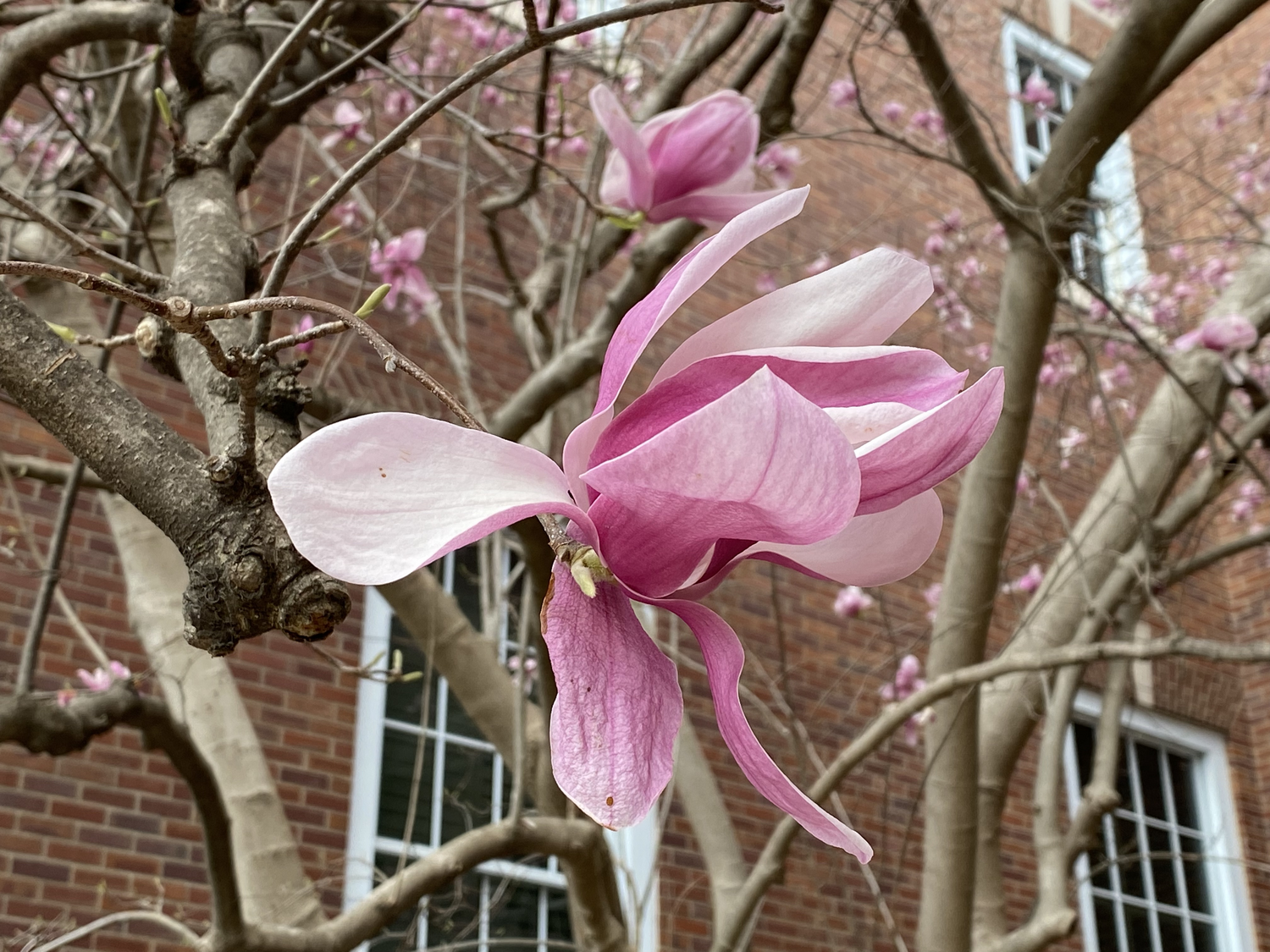
As I write this article, the season of spring is all around me here in Nashville, Tennessee. (You may be reading from a location in the Southern Hemisphere or in a part of the world where you are in autumn. Or perhaps you live where there are fewer distinct seasons). Right now, the tulip magnolias are blooming. They are among the first splashes of color to appear. Next will be the redbuds, followed by the Bradford pears, and then toward the end of the season of blooming trees (and often close to Holy Week), the dogwoods will bloom.
I’ve spent a large portion of my life in Tennessee, having moved here from Oklahoma as a young adult. Experiencing my first Tennessee spring was amazing. Since then, spring has become my favorite time of year. If I have any questions about where God is in this vast world, all I have to do is open my eyes and see what is happening around me.
It's easy for me, during spring, to connect with the Holy One who so miraculously created all these things and called them good. Each bloom, each bird, each bug, each human … each entity on this earth has been lovingly crafted by the Creator. (Although, sometimes I wonder, “God?!? Why ticks?”) And each entity, each created being is a part of God’s web of creation. We are all inter-connected—all humans, animals, plants, mountains, and oceans connected with human thought, intention, and action. Remember when we learned the extinction of the honeybee would threaten human existence, while also learning industrial waste threatened human and animal habitats? As Dr. King wrote so eloquently, “we live in an escapable network of mutuality.”
In the springtime, at first bud, creation becomes a liturgy whose leaders beckon us to worship. The pink along the horizon calls me to morning prayer. “O Lord, open my lips, and my mouth will declare your praise” (Psalm 51:15, NRSV). The birds deliver the call to worship, thanking God for the light, for the new day. The dome of the sky turns from gray to rose to orange to pale blue, warming the earth. The wind whistles, “Let all hearts and bodies, feathers and fur, stems and branches praise God’s name.”
John O’Donohue, the Irish poet and philosopher of blessed memory, said, “The human body is clay. ... Our clay has a memory that preceded our minds, a life of its own before it took its present form” [Anam Cara: A Book of Celtic Wisdom].
My clay includes the rich peat of County Clare, Ireland, the red dirt of Oklahoma, and a bit of granite dust of the Colorado Rockies. I’ve lived long enough here to be made, partly, of the sandy loam of middle Tennessee. But we are not mere clay. I also imagine that included in my cells are the dust of stars, remnants from places I cannot even begin to imagine. That stardust hints at how I wish to be a postlude in creation’s liturgy.
It’s through my Celtic roots that I feel called to live a “blessing way,” deeply grounded in the earth, observing and celebrating, blessing and being blessed by the ordinary acts and encounters of life. Gazing at the bare branches of a tree against the glowing sky of morning, sitting on the back porch and listening to the song of the tree frogs, giving my life to God each morning and thanking God for the day in the evening. Following this “blessing way,” creation becomes liturgy through which the earth and all its inhabitants worship the One who created all things. I am cojoined with creation’s liturgy.
Creation as liturgy calls us to praise God in all our steps, our thoughts, our breaths, “Let everything that breathes praise the Lord” (Psalm 150:6, NRSV).
We feel the earth under our feet, and we praise God. We see the earth in its richness—red and yellow ochre, white sand and sticky clay, black peat and marble gravel—and we praise God with our eyes who made even the soil and rocks of the earth in infinite diversity and beauty. Praise God with our steps on the ground. Praise God with our hands touching dirt. Praise God as we eat the fruits of the earth. Praise God with the clay that is woven into our cells—stardust, dirt, clay—through the Holy One we are all one, for it is of the earth that we are all made.
Praise God by watching a sunrise or sunset. Praise God as you feed the birds, as you tend a plant, as you stop to listen to the sound of the wind or the rain. Praise God when you sort out the recyclable things or put your food waste in the compost pile. Praise God when you turn off lights and conserve water. Praise God by praying for the earth.
Beloveds, let us as a part of creation join the chorus in celebration.
I invite you to write your own version of Psalm 150. Mine is below:
Praise the Lord!
Praise God in the sanctuary of creation;
praise God in the evening sky!
Praise God for God’s compassion for the earth;
Praise God for the creativity of all creation.
Praise God with a chorus of tree frogs;
praise God with wren and mourning dove!
Praise God with the rustle of leaves and swaying of branches;
praise God with wind and rain!
Praise God with crashing thunder;
praise God with loud crashing thunder!
Let everything that breathes praise the Lord!
Praise the Lord!
Adapted from Psalm 150
Beth A. Richardson serves as Dean Emeritus of The Upper Room Chapel. Her latest release from Upper Room Books is Walking in the Wilderness: Seeking God During Lent.
Photograph by Beth A. Richardson / The Upper Room, Tennessee